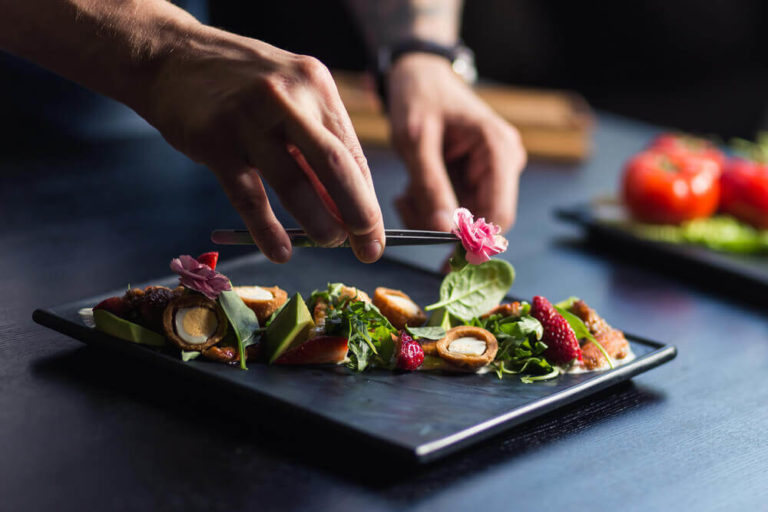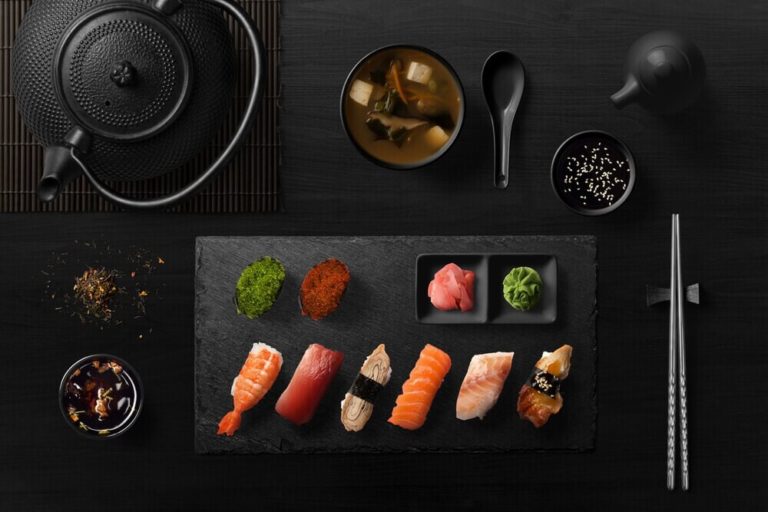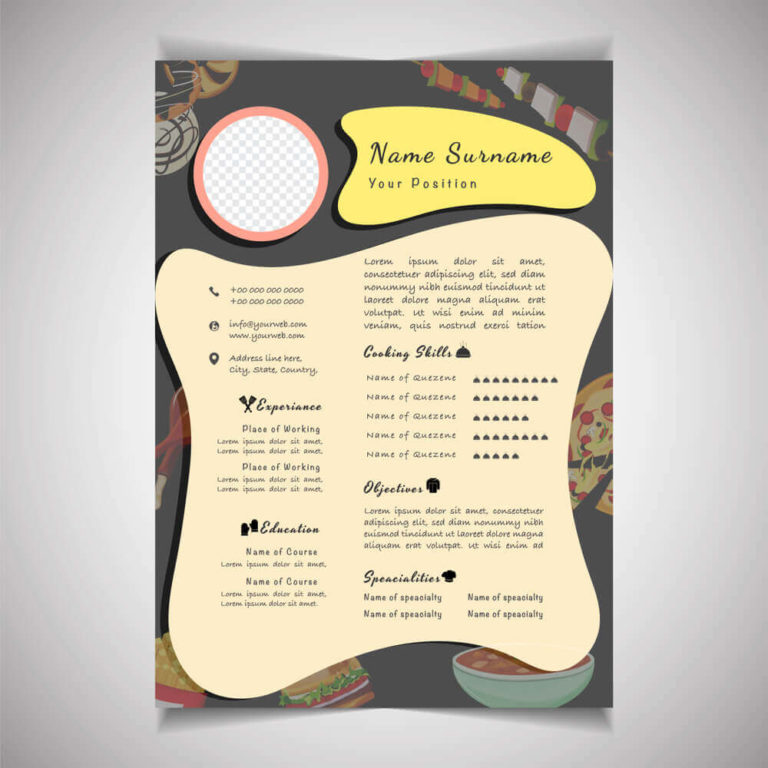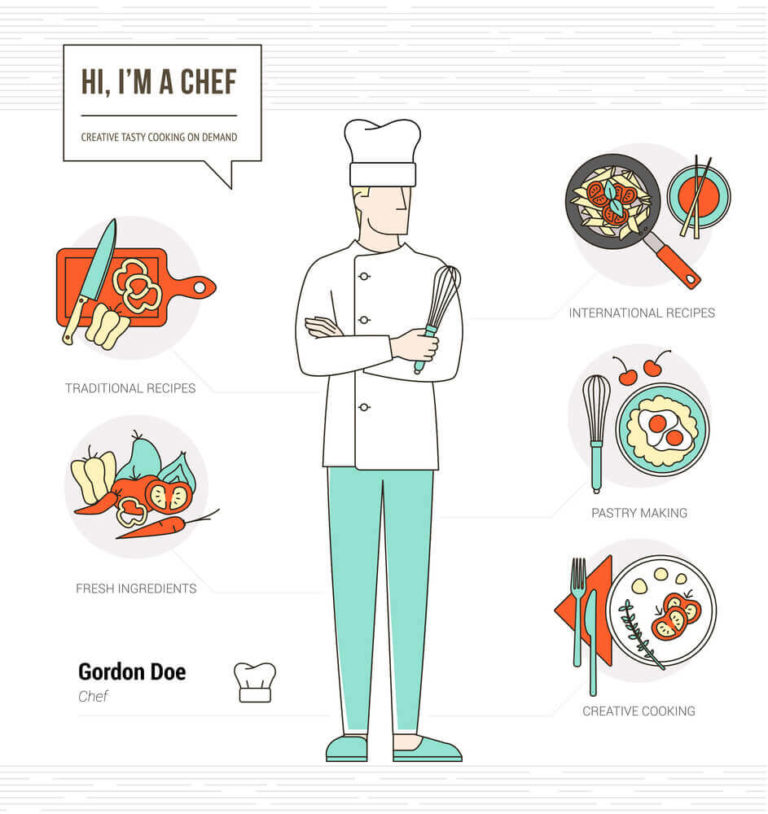Despite being a demanding career, it can be very satisfying if cooking is something you love. Read on to learn more about becoming a chef in the UK and some valuable tips on how to become a chef if you have no experience.
How to Become a Chef in the UK?
Here’s everything you need to know about being a chef, including what qualifications and skills you will need to have and what duties, responsibilities you’ll have to fulfil.

What Qualifications do You Need to Become a Chef?
You don’t necessarily need a degree to become a chef. Still, a Higher National Diploma (HND), a foundation degree or a degree in professional cookery or culinary arts can help you gain essential skills and knowledge to become a chef.
You can get into this job through one of the following:
- A college course
- A university course
- An apprenticeship
- Working towards this role

In University, you could study for a foundation degree, Higher National Diploma. You can also get a degree in:
- Culinary arts
- Professional cookery
To fulfil entry requirements in a university, you’ll usually need:
- 1 or 2 A levels, or equivalent, for a foundation degree or higher national diploma
- 2 to 3 A levels, or equivalent, for a degree
Many of these related degrees contain a placement that will give you valuable real-life industry experience working in a professional kitchen. Also, some restaurants prefer recruiting professional cooking or culinary arts students and graduates. That is because they are more familiar with cooking techniques and food handling methods.
What Skills do You Need to Become a Chef?
To become a chef, you’ll need to show the following skills and abilities:

- Very passionate about cooking
- Excellent technical skills and cooking techniques. (It includes knowing how to cook, store, serve food etc.)
- Physical endurance, as working in a kitchen is very demanding
- A good deal of self-motivation
- Very flexible attitude
- Exceptional teamwork and communication skills
- Willing to learn and take on board instructions
- Good organisational skills and the ability to delegate
- Extreme attention to detail to ensure consistency and high standards
- Commitment and loyalty
- Hard-working and a calm approach to stressful situations
- Ability to work without supervision
- Language skills, particularly French or Spanish, are also valuable
What Duties and Responsibilities will You have as a Chef?
It’s always a good idea to have some insight into what you will have to do in a profession. Your daily responsibilities will vary depending on your role. Here are some common tasks to give you an idea of how it’ll be –

- Prepare attractive menus while maintaining nutritional standards
- Order stock, inspect them on delivery and manage them
- Gut and prepare various types of meat or fish for cooking
- Grate, cut and wash large quantities of vegetables, fruits
- Cook and plate food creatively
- Monitor dishes to maintain quality and consistent portion sizes
- Make sure food is served on time, even when working under pressure
- Maintain hygiene at all times
- Adhere to health, safety and licensing rules
As you progress in your profession, these responsibilities will increase and change accordingly.

Career Path and Progression of a Chef
Along with job satisfaction, being a chef offers great career advancement opportunities, from commis chef to demi chef, chef de partie, sous chef, chef de cuisine and finally executive chef.
After gaining some experience, you can progress to section chef or station chef and look after a particular area like desserts or appetisers. Here’s a Pastry Chef Training course to get you ready for an amazing career.

The next step is – sous chef, which will mean running an entire kitchen when the head chef is busy. Finally, as a head chef or chef de cuisine, you’ll run the whole kitchen, create menus, and handle the budget.
Moreover, you could move into the business side of this industry by taking a foundation degree or degree in hospitality management. Many large establishments have executive chefs, who are usually in charge of multiple outlets. It’s a management role, which means very little cooking.
You could also train as a chef teacher or instructor working for a college or training provider.
How to Become a Cuisine Chef?
A chef de cuisine or an executive chef is the main chef in any restaurant. And the chef de cuisine is in charge of all the other functional chefs in a particular kitchen. This position is also known as a grand chef, head chef, chef manager, or master chef.
An executive chef will coordinate kitchen staff and decide how the kitchen will be run. Becoming an executive chef requires working up the kitchen and restaurant hierarchy.


![]() 15 minutes
15 minutes









 Aside from being a chef instructor, you can continue to work as a chef.
Aside from being a chef instructor, you can continue to work as a chef.






































